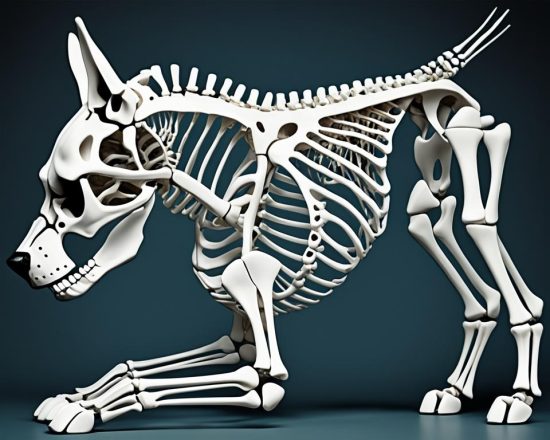How long do chihuahuas live? Find out the lifespan!
Discover the lifespan of Chihuahuas and learn about factors that impact their longevity. Explore tips to help your pet thrive for years to come.

Chihuahuas are a popular dog breed known for their small size and lively personality. Many pet owners wonder about the lifespan of chihuahuas and how long do chihuahuas live. Let’s see the factors that contribute to a chihuahua’s lifespan, including genetics, diet, and lifestyle. We will also discuss common health concerns for chihuahuas and how medical advancements have helped prolong their life expectancy. By understanding these factors, chihuahua owners can take steps to ensure their pet lives a long and healthy life.
The Origin and Enchantment of Chihuahuas
Chihuahuas have a fascinating history that dates back to ancient civilizations in Mexico. Their small size and lively personality made them valuable companions, and they were often associated with spirituality and good luck. Today, chihuahuas are popular pets worldwide due to their adorable appearance, affectionate nature, and adaptability to various living conditions.
Ancestry and Significance
The ancestry of chihuahuas can be traced to ancient civilizations in Mexico, particularly the region of Chihuahua and the Toltec civilization. They were cherished for their special qualities and regarded as sacred by the Toltecs. These ancient civilizations believed that chihuahuas had healing powers and were guardians of the afterlife.
Chihuahuas also had significance in the Aztec culture. It is believed that they played a role in religious ceremonies and were sometimes sacrificed to accompany their owners in the afterlife. Moreover, chihuahuas were often associated with the goddess of fire and fertility, Xochiquetzal. They were considered a symbol of love, luck, and protection.
Physical Description and Temperament
Chihuahuas are known for their distinctive physical features. They are the smallest breed of dog, with a compact body, round head, and large, expressive eyes. Their coat can be smooth or long, and they come in a variety of colors.
Despite their size, chihuahuas have a big personality. They are alert, confident, and often fearless. Chihuahuas are fiercely loyal to their owners and can become protective. They are known for their energetic and playful nature, making them delightful companions.
Popularity and Adaptability as Pets
Chihuahuas have gained immense popularity worldwide due to their charm and adaptability. Their small size makes them suitable for apartment living, and they require minimal exercise compared to larger dog breeds. Chihuahuas can thrive in various environments and adapt well to different living conditions.
Their endearing appearance and affectionate nature make them an excellent choice for families, singles, and seniors alike. Chihuahuas are known for their loyalty and devotion to their owners, forming strong bonds and bringing joy and companionship to their households.
Chihuahuas also tend to get along well with other pets if properly socialized. They can be loving and gentle with children, although their small size requires careful supervision and handling to prevent accidental injuries.
Chihuahuas’ adaptability, combined with their lively personality and undeniable charm, has made them one of the most popular dog breeds worldwide.
Understanding the Lifespan of Chihuahuas

To understand the lifespan of chihuahuas, it is important to consider the various factors that can influence how long they live. Genetics, diet, lifestyle, and access to healthcare all play a role in determining a chihuahua’s lifespan. Let’s delve deeper into these factors and explain how they can impact a chihuahua’s longevity.
- Genetics: Chihuahuas, like all living beings, inherit certain genetic traits from their parents. Genetic factors can influence a chihuahua’s overall health and predisposition to certain health conditions. By understanding the breed’s genetic history and ensuring responsible breeding practices, chihuahua owners can help promote a healthier gene pool.
- Diet: A well-balanced diet is essential for maintaining a chihuahua’s health and extending their lifespan. Providing them with high-quality, nutritious food supports their immune system, bone health, and organ function. It is crucial to consult with a veterinarian to determine the specific dietary needs of your chihuahua.
- Lifestyle: Regular exercise and mental stimulation play a significant role in a chihuahua’s overall wellbeing. Daily physical activity helps prevent weight gain and keeps their muscles strong. Mental stimulation through activities like puzzle toys or training exercises promotes their cognitive health and helps prevent behavior problems.
- Access to Healthcare: Regular veterinary check-ups and preventive care are vital for monitoring a chihuahua’s health and detecting any potential issues early on. Vaccinations, parasite control, and dental care are essential aspects of maintaining a chihuahua’s overall health and extending their lifespan.
| Factors Influencing Chihuahua Lifespan | Key Considerations |
|---|---|
| Genetics | Awareness of breed-specific health concerns |
| Diet and Nutrition | Providing a balanced, nutritious diet |
| Lifestyle | Regular exercise and mental stimulation |
| Access to Healthcare | Regular veterinary check-ups and preventive care |
Key Factors Contributing to Chihuahua Longevity
Chihuahua longevity is determined by various key factors that contribute to their overall well-being and lifespan. Understanding these factors can help chihuahua owners make informed decisions regarding their pet’s health and care.
Genetics and Hereditary Health Conditions
Genetics play a significant role in a chihuahua’s health and lifespan. Like all dog breeds, chihuahuas are prone to certain hereditary health conditions. By understanding their genetic makeup and potential health risks, owners can take proactive measures to mitigate these risks and provide appropriate care for their furry companions (chihuahua genetics, hereditary health conditions in chihuahuas).
Genetic testing is an essential tool for responsible chihuahua breeding. It helps identify potential genetic disorders and allows breeders to make informed decisions to improve the breed’s overall health.
The Impact of Diet and Nutrition
Proper diet and nutrition are crucial for a chihuahua’s overall health and longevity. Providing a balanced diet that meets their nutritional needs is essential to ensure optimal growth, development, and overall well-being (chihuahua diet and nutrition).
Feeding a high-quality, age-appropriate diet that includes a balance of proteins, carbohydrates, fats, vitamins, and minerals is key to supporting a chihuahua’s health. Regularly monitoring their weight and adjusting their food intake as needed can help prevent obesity, which is a common health issue in chihuahuas.
Lifestyle and Environmental Influences
The lifestyle and environment in which a chihuahua lives can also significantly impact their longevity. Providing a safe, stress-free, and stimulating environment helps promote their overall well-being and reduces the risk of developing health issues (chihuahua lifestyle, chihuahua environmental influences).
Regular exercise, mental stimulation, and socialization are essential for chihuahuas to thrive. Ensuring that they have a comfortable living space, access to fresh air, and proper temperature control is also crucial for their health and well-being.
It’s important to minimize exposure to potential hazards such as toxic substances, extreme temperatures, and stressful situations. Regular veterinary check-ups and preventive care, including vaccinations and parasite control, are also essential to maintain a chihuahua’s health and longevity.
A Glimpse into Common Health Concerns for Chihuahuas
Just like any other dog breed, chihuahuas are susceptible to certain health concerns that owners should be aware of to ensure their pet’s well-being. By understanding these common health problems, you can recognize symptoms early on and seek appropriate veterinary care to prevent complications.
Chihuahua health concerns can range from minor issues to more serious conditions. Some of the most common health problems in chihuahuas include:
- Dental problems: Chihuahuas are prone to dental issues such as periodontal disease, tooth decay, and abscesses. Regular dental care and professional cleanings are essential to maintain their oral health.
- Heart problems: Chihuahuas can develop heart conditions such as heart murmurs, congestive heart failure, and mitral valve disease. Regular check-ups and an appropriate diet can help manage these conditions.
- Hypoglycemia: These small dogs have a high metabolism and can experience episodes of low blood sugar, which can lead to weakness, seizures, or even coma. Monitoring their diet and providing regular meals can help prevent hypoglycemia.
- Patellar luxation: Chihuahuas may be prone to patellar luxation, a condition where the kneecap dislocates from its normal position. This can cause discomfort and lameness. Surgical intervention may be necessary for severe cases.
- Tracheal collapse: Chihuahuas can develop a weakened or collapsed trachea, which can result in coughing, difficulty breathing, and exercise intolerance. Weight management and minimizing stress on the trachea can help manage this condition.
How Medical Innovations Prolong Chihuahua Life Expectancy
Thanks to advancements in veterinary care and preventive healthcare practices, chihuahuas are living longer than ever before. These medical innovations have contributed to prolonging chihuahua life expectancy by improving diagnostics, treatments, and preventive measures.
Advancements in Veterinary Care
Modern veterinary care has revolutionized the way we diagnose and treat medical conditions in chihuahuas. Advanced imaging techniques, such as ultrasound and MRI, enable veterinarians to accurately assess the health of vital organs and detect any abnormalities. This early detection allows for timely intervention and improved treatment outcomes.
The Role of Preventive Healthcare
Preventive healthcare plays a crucial role in prolonging the life expectancy of chihuahuas. Regular check-ups, vaccinations, and preventive treatments for parasites, such as fleas and ticks, help prevent the onset of diseases and ensure overall well-being. Additionally, dental care, including professional cleanings and regular brushing, can prevent dental diseases that can negatively impact a chihuahua’s health.
By staying up to date with veterinary care and practicing preventive healthcare, chihuahua owners can help ensure their pet’s wellbeing and longevity. Regular visits to the veterinarian and following recommended preventive measures will contribute to a healthier and extended lifespan for their beloved chihuahuas.
Nutrition’s Role in Extending Chihuahua Lifespan

Proper nutrition is essential for extending the lifespan of chihuahuas. Providing a balanced and nutritious diet can help promote their overall health and longevity.
When it comes to chihuahua nutrition, it’s crucial to focus on high-quality proteins, balanced fats and carbohydrates, and essential vitamins and minerals. A diet rich in lean meats, such as chicken or turkey, can provide the necessary protein for muscle development and maintenance. Additionally, incorporating whole grains and vegetables can supply the right balance of carbohydrates and fiber for energy and digestion.
Feeding chihuahuas should be done in appropriate portions to prevent obesity, a common issue in small dog breeds. Overfeeding can lead to weight gain and related health problems. It’s important to consult with a veterinarian to determine the ideal feeding guidelines for your chihuahua based on their age, weight, and activity level.
In addition to a well-balanced diet, you can also consider incorporating supplements that are specifically formulated for chihuahuas. These supplements can help fill in any nutritional gaps and support their overall health.
Maintaining an Ideal Living Environment for Chihuahuas
When it comes to your chihuahua’s living environment, you might wonder whether they’re better off indoors or outdoors. Each option has its own advantages and considerations to keep in mind to ensure the safety and happiness of your furry companion.
Indoor Living
Many chihuahua owners choose to keep their pets primarily indoors, and for good reason. Indoor chihuahuas are generally safer from potential threats such as predatory animals, extreme weather conditions, and traffic accidents. Additionally, indoor living provides better control over their diet, exercise, and overall well-being. It also reduces the risk of flea and tick infestations and exposure to contagious diseases from other animals.
Outdoor Exploration
On the other hand, chihuahuas can benefit from outdoor time and exploration. Outdoor environments offer mental stimulation and a chance for exercise, which is important for their overall health and well-being. However, it’s crucial to provide a safe and supervised outdoor space to prevent accidents or encounters with dangerous animals. A secure fence, regular inspections for any potential hazards, and proper identification tags can help ensure your chihuahua’s safety while enjoying the outdoors.
Creating a Stress-Free Home Atmosphere
Regardless of whether your chihuahua spends most of their time indoors or outdoors, creating a stress-free home atmosphere is crucial for their happiness and overall well-being. Chihuahuas are known to be sensitive dogs, and it’s important to minimize stressors in their environment to reduce anxiety and promote a calm and relaxed state.
Here are some tips for creating a stress-free home for your chihuahua:
- Provide a designated quiet and comfortable space for your chihuahua to retreat to when they need alone time.
- Establish a consistent daily routine to help your chihuahua feel secure and confident.
- Avoid exposing your chihuahua to loud noises or sudden changes in their environment.
- Ensure your chihuahua has access to fresh water, nutritious food, and regular exercise.
- Use positive reinforcement training techniques to build trust and strengthen the bond between you and your chihuahua.
How Long Do Chihuahuas Live?
In this section, we will definitively answer the question, “How long do chihuahuas live?” Chihuahuas have an average lifespan of around 12 to 20 years, which is relatively long compared to other dog breeds. However, it’s important to note that individual chihuahuas may live shorter or longer lives depending on various factors.
The oldest chihuahua on record is Pippin, who was 20 years and 265 days old. This remarkable lifespan serves as an inspiration to chihuahua owners, showcasing the potential for a long and healthy life for these beloved pets.
Chihuahua lifespan can be influenced by factors such as genetics, diet, lifestyle, and access to healthcare. Responsible breeding practices and proper nutrition play a crucial role in promoting longevity, while regular exercise, mental stimulation, and preventive healthcare also contribute to a chihuahua’s overall wellbeing.
| Lifespan Range | Average Lifespan | Oldest Chihuahua on Record |
|---|---|---|
| 12-20 years | Approximately 15 years | Pippin (20 years, 265 days) |
Responsible Breeding and Its Effects on Chihuahua Health
Responsible breeding practices have a significant impact on the health of Chihuahuas. When it comes to chihuahua breeding, it is crucial to prioritize the well-being of the breed. By engaging in responsible breeding techniques, such as genetic testing and health screenings, breeders can ensure that they are producing healthy and genetically sound puppies.
One of the key considerations in ethical chihuahua breeding is to avoid the propagation of hereditary health conditions. By carefully selecting breeding pairs and conducting thorough health checks, responsible breeders can minimize the risk of passing on genetic diseases to future generations. This not only improves the overall health and well-being of Chihuahuas but also reduces the burden of costly medical treatments for both breeders and owners.
Supporting responsible breeders is essential for the betterment of the Chihuahua breed. By choosing to obtain a Chihuahua from a responsible breeder, you are not only bringing home a healthy and well-cared-for puppy but also contributing to the overall health effects of responsible breeding. It is crucial to research and select a reputable breeder who follows ethical breeding practices.
Remember, the health and well-being of Chihuahuas depend on responsible breeding. By prioritizing ethical breeding practices, we can ensure that future generations of Chihuahuas thrive and lead healthy lives.

FAQs on how long do chihuahuas live
What is the origin and significance of Chihuahuas?
Chihuahuas have a rich history that traces back to ancient civilizations in Mexico. They were treasured companions and were often associated with spirituality and good luck. Today, chihuahuas are beloved pets worldwide for their adorable appearance, affectionate nature, and adaptability to various living conditions.
What are the physical characteristics and temperament of Chihuahuas?
Chihuahuas are small dogs with a distinctive apple-shaped head and large, expressive eyes. They have a compact body with either a short or long coat. In terms of temperament, chihuahuas are known for being alert, confident, and spirited. They can also be loving and loyal towards their owners.
Why are Chihuahuas popular as pets and adaptable to different living conditions?
Chihuahuas are popular as pets due to their small size and lively personality. They make great companions for individuals or families living in apartments or small homes. Chihuahuas adapt well to different living conditions as long as they receive proper care, exercise, and socialization.
What factors influence the lifespan of Chihuahuas?
Several factors can influence the lifespan of chihuahuas, including genetics, diet and nutrition, lifestyle, and access to healthcare. Genetics can predispose chihuahuas to certain health conditions, while a balanced diet, active lifestyle, and regular veterinary care can contribute to a longer lifespan.
What role do genetics and hereditary health conditions play in chihuahua longevity?
Genetics can play a significant role in a chihuahua’s lifespan. Certain genetic factors can make chihuahuas more prone to specific health conditions. Responsible breeding practices, such as genetic testing and health screenings, can help minimize the propagation of hereditary health conditions and improve the overall health of the breed.
How does diet and nutrition impact the longevity of chihuahuas?
A nutritious diet is essential for extending the lifespan of chihuahuas. Providing high-quality proteins, balanced fats and carbohydrates, and essential vitamins and minerals can help keep chihuahuas healthy and promote longevity. It’s important to feed chihuahuas appropriately for their size and age, and to avoid overfeeding or feeding them unhealthy foods.
What are the lifestyle and environmental influences that affect chihuahua longevity?
Chihuahuas’ lifestyle and environment can impact their lifespan. Regular exercise, mental stimulation, and a stress-free living environment contribute to chihuahua health and longevity. Minimizing exposure to toxins, providing a safe living space, and managing stress levels can help chihuahuas live longer and healthier lives.
What are the common health concerns for chihuahuas?
Chihuahuas are prone to certain health conditions, including dental problems, patellar luxation, heart disease, and collapsed trachea. Regular veterinary check-ups, proper dental care, and a healthy lifestyle can help prevent and manage these health concerns.
How have medical innovations contributed to prolonging chihuahua life expectancy?
Advancements in veterinary care, such as improved diagnostics, treatments, and preventive measures, have helped prolong chihuahua life expectancy. Regular vet visits, vaccinations, parasite prevention, and early detection of health issues through screenings and tests have significantly improved the overall health and lifespan of chihuahuas.
How long do chihuahuas typically live?
On average, chihuahuas live between 12 and 20 years. However, some chihuahuas have been known to live even longer with proper care and attention. The oldest chihuahua on record lived to be 20 years and 265 days old.
Why is responsible breeding important for chihuahua health?
Responsible breeding practices, including genetic testing, health screenings, and ethical considerations, are vital in improving chihuahua health. By supporting responsible breeders, chihuahua enthusiasts can contribute to the overall well-being of the breed and reduce the risk of hereditary health conditions.





